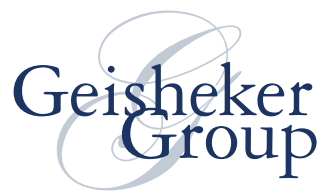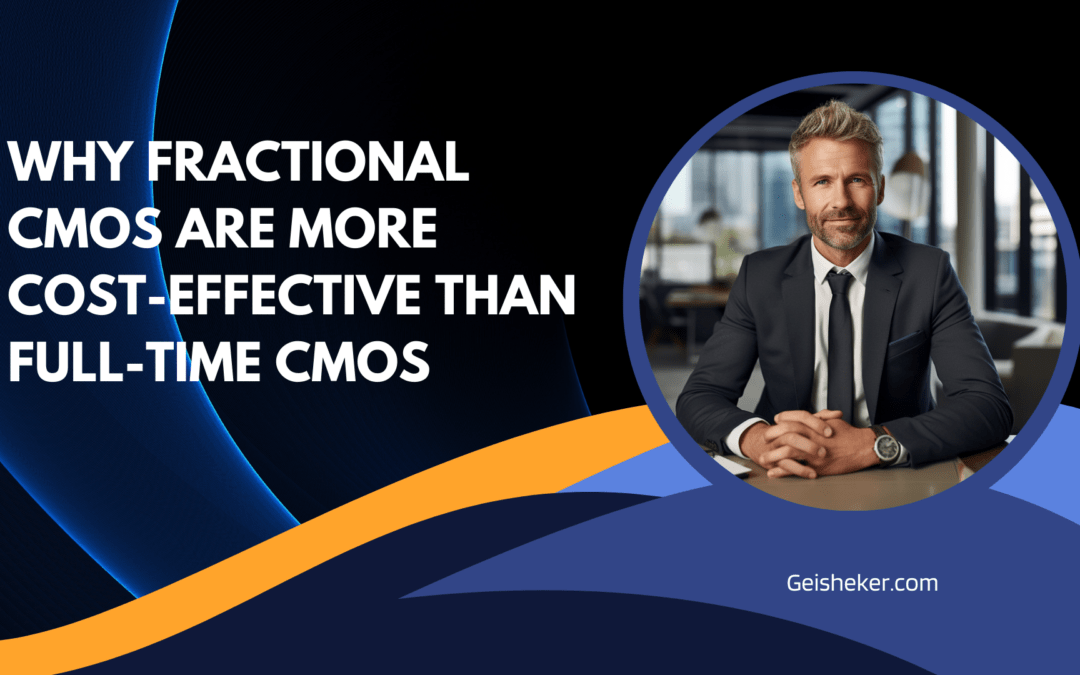The Evolving CMO Role and the Rise of Fractional CMOs
The role of the Chief Marketing Officer (CMO) has expanded dramatically over the past decade. No longer is the CMO simply responsible for driving brand awareness and managing advertising campaigns. Today’s CMOs are strategic growth leaders tasked with overseeing an increasingly complex marketing landscape across both digital and traditional channels.
However, many companies—particularly small to mid-sized businesses—struggle to justify the considerable expense of a full-time CMO. The average CMO salary now exceeds $300,000, and total compensation packages can approach $1 million for CMOs at tech companies and large corporations. Yet despite the high price tag, the tenures of most CMOs remain stubbornly short, averaging just 42 months according to Spencer Stuart’s 2022 CMO report.
In this environment of high costs and high turnover, a new model has emerged: the fractional Chief Marketing Officer (fCMO). Fractional CMOs provide on-demand marketing leadership and are viewed as a smarter, more agile solution compared to hiring a full-time CMO. Here’s a closer look at the fractional CMO model and why it delivers better value:
The Fractional CMO Solution
A fractional CMO is an experienced marketing executive who provides strategic leadership and oversight on a part-time, project, or retainer basis. They offer the expertise of a full-time CMO but with more flexibility and cost-efficiency.
The fCMO model evolved to meet the needs of modern organizations by providing on-demand access to CMO-caliber skills. Rather than paying a full-time salary and benefits package, companies pay only for the fractional time utilized by the fCMO. Engagements can range from long-term strategic planning to one-off initiatives like overseeing a brand refresh or product launch campaign.
According to Forrest Research, 57% of marketing leaders already utilize a gig economy model to access specialized marketing capabilities and expertise. The Forrester report predicts fractional resourcing will become even more commonplace as leaders seek greater agility and flexibility in meeting ever-changing market dynamics.
Why Fractional CMOs Beat Full-Time CMOs
Hiring marketing consultants or fractional CMOs may have once been viewed as a short-term fix. However, perspectives have changed considerably as the talent market, technology, and marketing ecosystem have evolved. Today, there is a compelling case that fractional CMOs consistently deliver better value than full-time hires:
1. Significant Cost Savings
The most obvious benefit of the fCMO model is cost savings, with fractional CMOs typically charging $5,000 to $25,000 per month compared to a $300,000+ salary for a full-timer. For small and mid-sized companies especially, eliminating a six or seven-figure salaried position in favor of flexible, on-demand expertise provides tremendous balance sheet relief.
An Evolving CMO Role and the Rise of Fractional CMOs study found companies save an average of 67% on marketing leadership costs by using fractional vs full-time CMOs. Those savings can then be reallocated to expanded program budgets and campaign spending for immediate sales impact.
2. Risk Mitigation Against High CMO Turnover
As noted earlier, the tenure of full-time CMOs can be quite short with an average tenure of just 42 months. There are significant ramp-up costs and productivity lags associated with replacing a CMO. Poor succession planning is also disruptive to the marketing department and brand momentum.
Fractional CMOs allow organizations to mitigate risk because engagements can be extended, changed, or canceled based on evolving needs. With the average tenure of an fCMO over 71 months, fractional CMOs also provide stability and continuity most full-time CMOs cannot match.
3. On-Demand Flexibility and Scalability
Even for expert CMOs, effectively managing various specialties across the entire marketing mix is challenging. Digital marketing alone now comprises nearly a dozen unique disciplines like social media, SEO/SEM, websites, and mobile apps. Add brand management, product marketing, event marketing, and communications to the mix and it’s easy to see why many CMOs feel overwhelmed.
Fractional CMOs provide vital flexibility to scale marketing capabilities up and down based on evolving priorities. For example, extra days can be allocated for product launch support without having to permanently expand headcount. Similarly, if brand awareness has now stabilized, those budget dollars can be redirected elsewhere without the need to terminate a full-time CMO.
4. Depth and Breadth of Experience
Unless you are a Fortune 500 corporation, chances are a full-time CMO will not possess deep expertise in all facets of marketing. However, an experienced fCMO consultancy will have specialists on staff covering everything from branding to digital tactics and e-commerce strategy.
Additionally, fractional CMOs have often compiled extensive experience working for a range of companies and industries. That exceptional breadth of perspective is difficult for most lone CMOs to match. Consequently, an fCMO collective can drive more impactful outcomes drawing from real-world knowledge of what delivers meaningful results.
The Verdict Is In
A Forrester Consulting study commissioned by Chief Outsiders reveals that working with fractional CMOs leads to significant advantages:
- Faster time to value: 80% of respondents said fractional CMOs drive higher marketing impact compared to other providers
- Improved marketing agility: 89% stated fractional CMOs increased speed and flexibility responding to market changes
- Risk reduction: 74% see lower risk in working with fractional vs. full-time CMOs
With ROI validation from independent research firms, it becomes quite clear fractional executives deliver measurable benefits above and beyond full-time hires. Specifically for marketing leadership, fractional CMOs arms organizations with best-in-class capabilities without getting locked into yet another highly-paid executive with an unpredictable shelf life.
The fractional model empowers leadership to only pay for results-driven marketing horsepower when needed rather than carrying excessive overhead indefinitely. That intelligent return on investment will continue driving fractional growth in the coming years.
Getting Started with a Fractional CMO
Now that the advantages are clear, how does a company get started on the path to fractional marketing leadership?
The first step is determining key strategic and tactical gaps. Typical fractional CMO use cases include interim leadership, long-term strategy development, campaign execution, and martech optimization. The goal is to isolate challenges that will most directly impact business performance.
Next is finding a fractional partner that matches your needs. Larger fCMO firms like Chief Outsiders offer true on-demand access to talent across the competency spectrum. Look for a team with experience specific to your sector as well as a track record of driving marketing transformation for companies similar in size and maturity to yours.
It is also important to meet final candidates to ensure a personal fit. A fractional CMO will become a trusted strategic advisor and confidant to the CEO and executive team. Good chemistry speeds up the relationship building process.
Finally, do not get hung up budgeting for an engagement. Fractional CMOs are accustomed to crafting flexible agreements based on days committed per month. There are also project-based options. Work together to create a scope of work personalized to your growth goals and scale.
Embrace the Future
Flexible business models have infiltrated nearly every aspect of commerce—so why should talent acquisition be any different? A startup can secure a world-class CMO for just $15,000 a month. A $20 billion enterprise can add social media and analytics firepower ahead of a product launch without altering HR budgets.
Such targeted, specialized support delivers the skillsets needed at the time they are needed most. No more hoping a single full-time CMO can effectively manage a dozen disparate responsibilities simultaneously.
Therefore, embrace exponential marketing change by embracing the fractional CMO revolution. Lay the foundation for faster growth by working with the very best marketing minds available anywhere. Achieve better outcomes through built-in flexibility and managed risk. Then scale up, down, and out as needs evolve.
The decisions are easy when the upside is exponential. So take that first step by connecting with a fractional partner ready to elevate marketing leadership. Momentum accelerates immediately as the fractional CMO gets quickly immersed in sharing strategies from past success. In mere weeks, the positive impact will be palpable across all aspects of customer and market development.
Suppose even the savviest full-time CMO will struggle to deliver value rivaling a team of specialists. Thus for any innovator seeking to thrive amid turbulence, fractional is unequivocally the way forward.
Get a Leading B2B SaaS Fractional CMO
If your company needs a fractional CMO for B2B SaaS consider working with Peter Geisheker. Peter has been providing Fractional CMO services for over 20 years and has expertise in growth tactics and conversion optimization.


